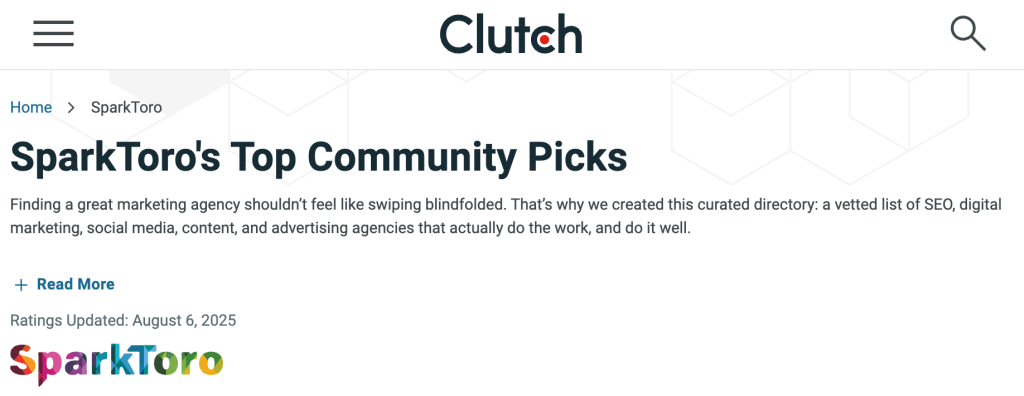Every now and then a career “L” seeps its way into my subconscious, usually at about 11:05pm when I’m about to fall asleep. One of those recurring thoughts is when I had an awful time working with a marketing agency. I can blame them all I want. But for whatever faults they had, I have to admit I’m culpable too.

I keep going back to this thought because I’m not sure if I ever got great closure on it. We deemed the project a failure, took the learnings that we had, and moved on. My team and I weren’t going to point fingers internally, especially in a situation where our resources were limited anyway and the path forward was ultimately clear. But… what could I have done differently? This is what I think about most. My mind races through the usual checkboxes:
- Was the scope of work clear?
- Were there people who could vouch for their work?
- Did the agency demonstrate willingness and competency in this project?
- Did we have a clear understanding of what we wanted them to achieve?
I could answer all of these affirmatively… ish. And that’s exactly what tells me where the problem lies: we had just enough clarity to feel confident, but not enough to stay aligned.
Internally, we had one person championing the project from the beginning, they passed the baton to me, and then I ran with it. In the moments when I faced my inbox, unsure about the current status of the project, I passed the baton back, “The agency’s question is confusing me… I thought we wanted X not Y?” And then back and forth we went.
I’m oversimplifying. But that’s the heart of it. What we should have done was ask ourselves:
“Who on our team is going to own this project — and how will we define success?”
That answers questions like, what marketing function owns the scope of work (is it brand or performance)? Can the owner clearly define success, and can they get the other team leads to agree or at least… care? Better yet, can they help define some common currency with those other team leads so that every stakeholder can nod to themselves, “Yup; I’m getting what I need”?
The question forces accountability, wherein it’s clear who owns the scope of work and thus, can articulate what the deliverable will be. If anyone on the team is wondering about the status, they know exactly who to ask for clarity. And when there’s accountability, the project owner will be responsible for if/when the project gets derailed. They (should) be able to answer: “Where did we last leave off?” “Did we or did we not agree on the deadline?” “Did I give them the keys/permissions I’m supposed to give?”
Now… one other point of alignment: How do you define ownership? It might sound obvious — and if you are running a well-oiled marketing machine, chances are it is obvious. But it’s worth examining inwardly what the project owner needs to do. It’s probably:
- Writing and updating the brief
- Fielding agency questions (and not punting them to someone else on your team)
- Clarifying internal feedback and corralling approvals
- Tracking progress and keeping scope creep in check
- Reporting on success/failure in terms everyone understands
Once you’ve defined the owner, the next step is to actually empower them. Too often, someone’s assigned as the point person but doesn’t have the authority to make decisions — they’re just relaying messages between teams. That’s only risking confusion and delays. A true project owner should have the final say on key decisions. They should be the one defining deliverables, signing off on completion, and keeping things moving.
That doesn’t mean they have to do everything alone. They can lean on the team for support and try things like:
Pressure-test the brief. Ask a neutral teammate to read it and identify what’s ambiguous. (You can also leverage B2B review sites like Clutch to help find experts that can help you write this.)
Schedule a mid-point gut check. Not a status meeting — a reality check with all the internal stakeholders. Address topics like whether the project is on track, if current needs are being met, and if goals are still clear.
Use an RACI chart if it’s a big project. Sometimes old tools work for a reason. Also known as a responsibility assignment matrix, RACI stands for Responsible, Accountable, Consulted, and Informed. It helps clarify who does the work, who calls the shots, whose opinion matters, and who needs to stay in the loop for each task, milestone, or decision.
Agency work is expensive — not just in budget, but in opportunity cost. If you burn cycles without a clear owner and definition of success, you’re not just wasting money. You’re delaying impact, draining team morale, and ruining your sleep at 11:05pm. That’s why the one question matters.
P.S. If you’re currently hunting for an agency, Rand and I put together a custom Clutch directory (see below!) At the moment, this list consists of agencies and consultants Rand and I personally know well and/or have worked with. We’re also taking recommendations from our network — so if you know an agency worth spotlighting, you can submit nominations here. We’ll vet and include them too!
